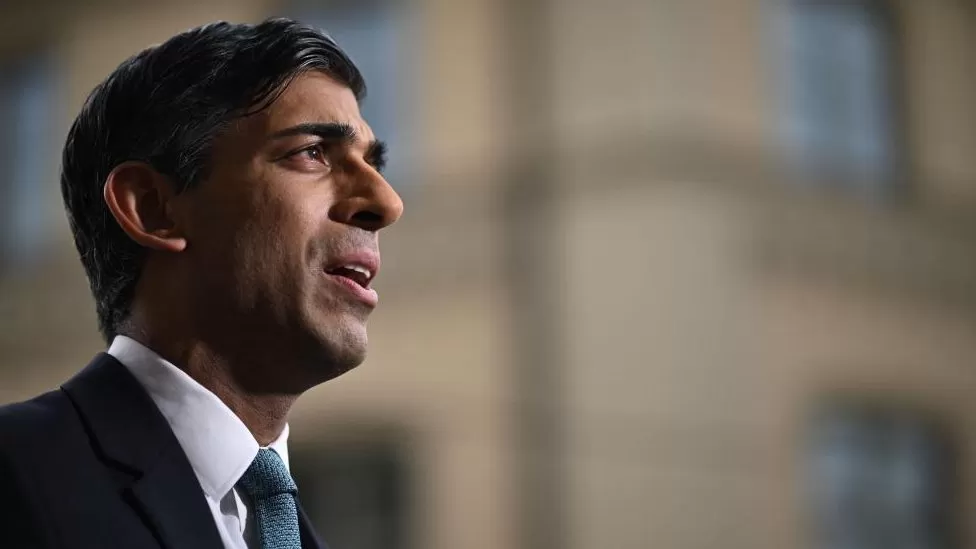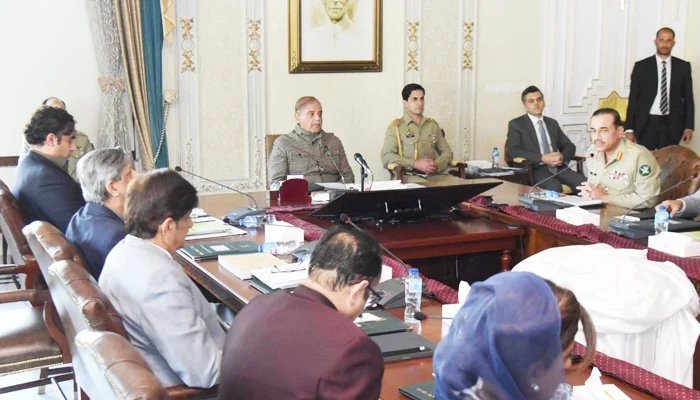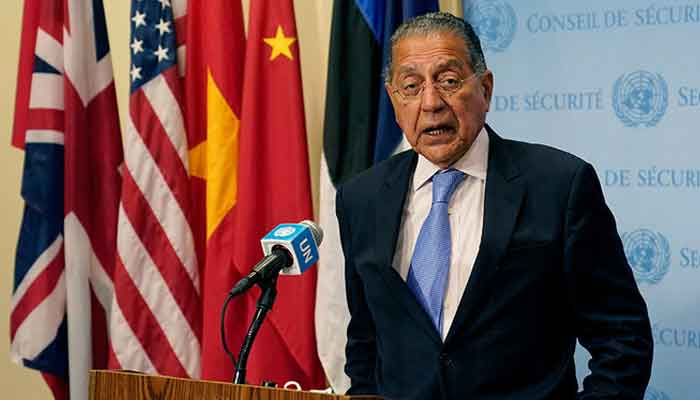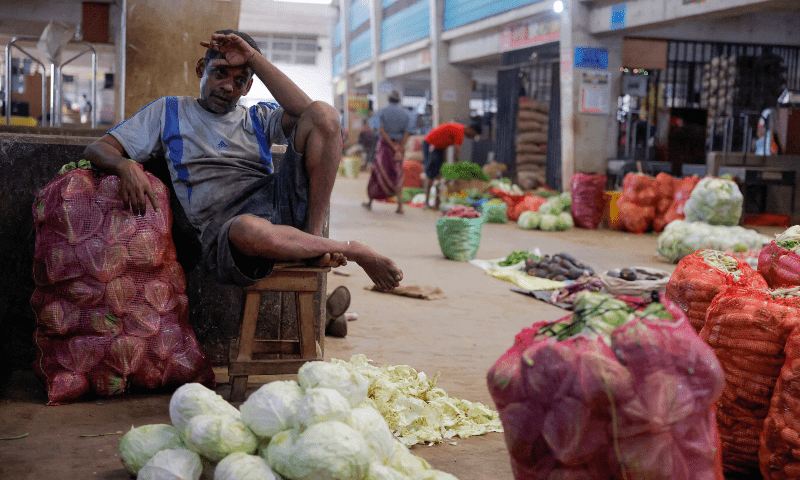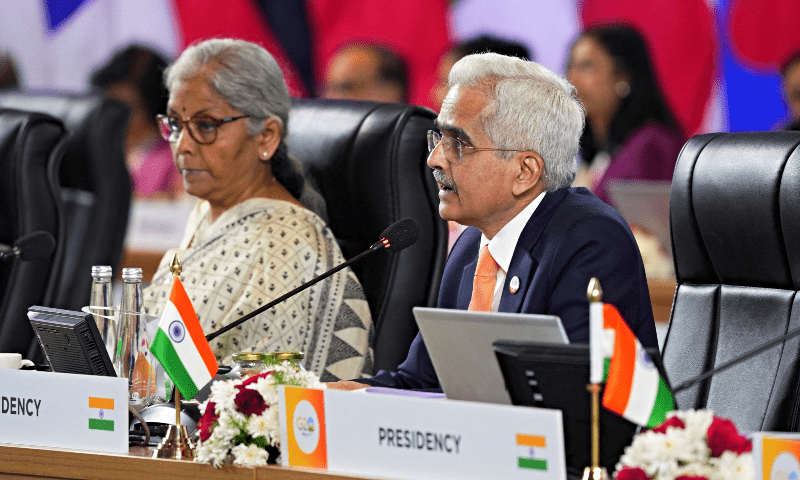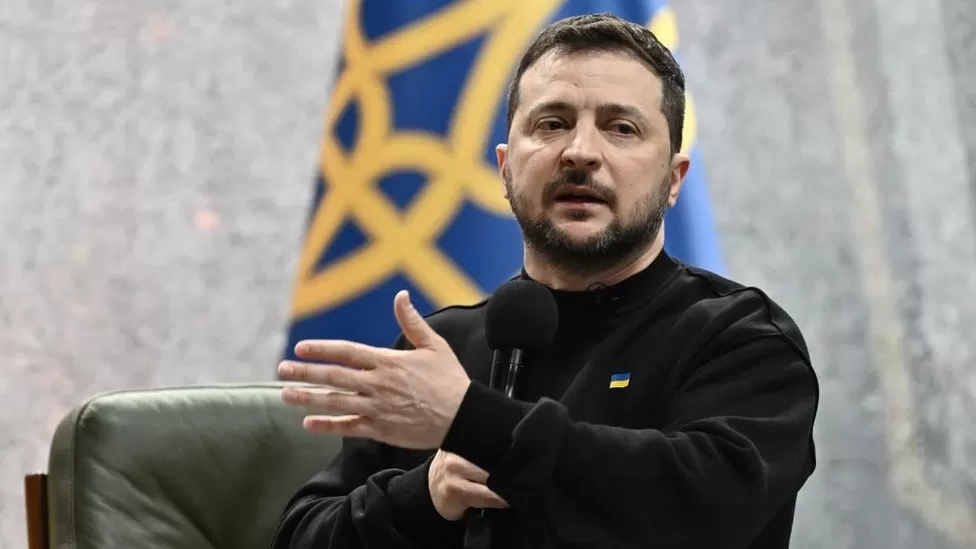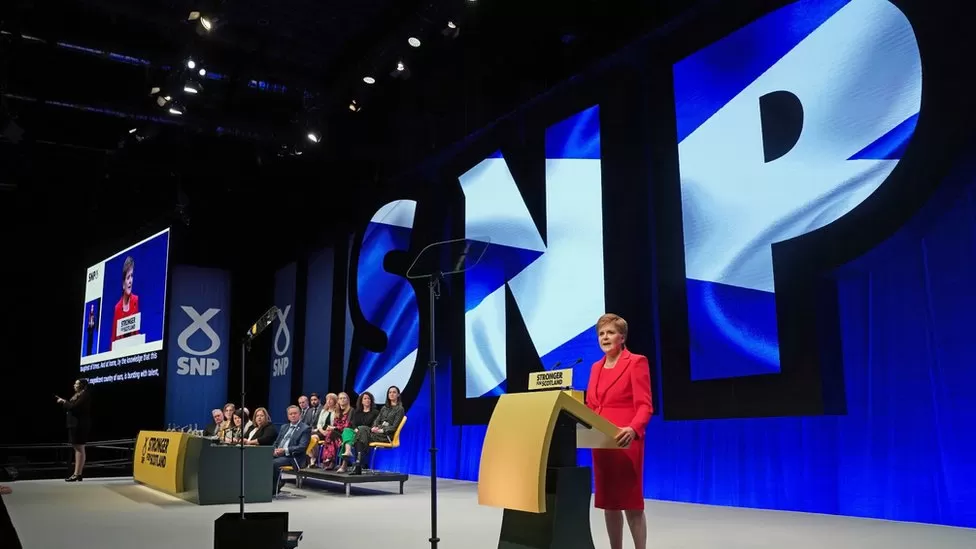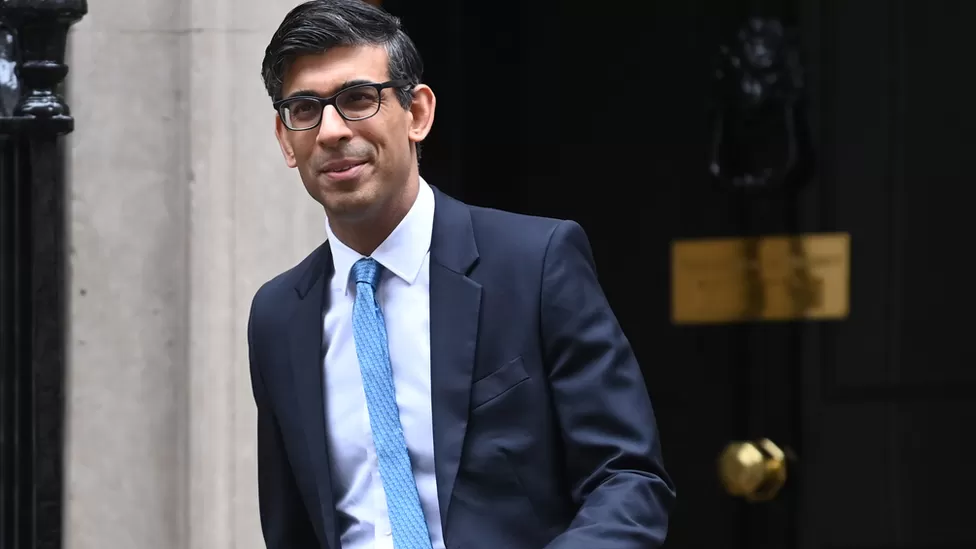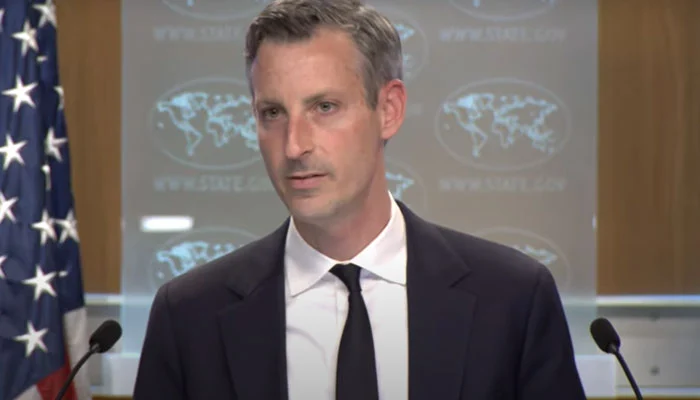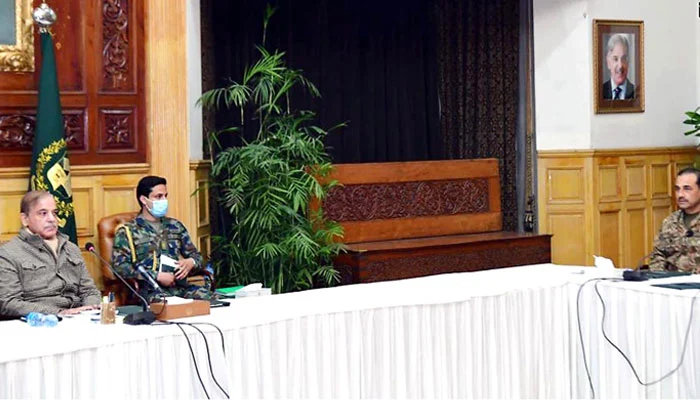But the prime minister said no agreement had yet been made between the UK and the European Union.
Irish Prime Minister Leo Varadkar said the deal over trade between Great Britain and Northern Ireland was “inching towards a conclusion”.
A No 10 source has described the negotiations as positive.
The taoiseach said an agreement could come within days but this was “by no means guaranteed” as negotiators still had a gap to close.
He urged politicians from the UK, Brussels and Northern Ireland to “go the extra mile” to get it over the line.
The Northern Ireland Protocol – agreed under former PM Boris Johnson after the UK left the European Union – has been an ongoing source of tension.
It sees Northern Ireland continue to follow some EU laws so that goods can flow freely over the border to the Republic of Ireland without checks.
Instead, goods arriving from England, Scotland and Wales are checked when they arrive at Northern Irish ports.
Some, including Northern Ireland’s Democratic Unionist Party (DUP), feel this undermines the nation’s position within the rest of the UK as well as impacting trade.
The DUP, which also wants less EU oversight of the rules, is currently blocking the formation of devolved government in Northern Ireland because of its concerns.
Leo Varadkar encourages the UK and EU to reach an agreement
The UK and EU have been negotiating on a way forward and appear to be on the brink of completing a new deal – for which the prime minister has been trying to win support.
Speaking to the Sunday Times from Downing Street, Mr Sunak said: “I’m here all weekend trying to get it done… We’re giving it everything we’ve got.”
He said he wanted to show that Brexit “works for every part of the United Kingdom”, continuing: “There’s unfinished business on Brexit and I want to get the job done.”
The prime minister said “the idea that the EU can impose laws on Northern Ireland without them having any say isn’t acceptable”, adding that ensuring stability for the people of Northern Ireland is key.
“It’s about the people and communities of Northern Ireland,” he told the newspaper. “It’s about what’s best for them and that’s what everyone should have in the uppermost of their minds.”
The prime minister added in an article for the Sunday Telegraph: “Resolving this issue is fundamental to everything that I believe as a Conservative, as a Brexiteer and as a Unionist.”
Meanwhile, there had been plans for King Charles to meet the president of the European Commission in the UK on Saturday, the BBC understands.
The planned meeting between the King and Ursula von der Leyen, originally reported by Sky News, was not part of the negotiations between the UK and the EU and multiple sources said her visit was cancelled due to operational reasons.
It is not known when she will now come to the UK, but the fact a meeting was planned appears to indicate a deal was about to be done – and publicly presented – while she was in the UK.
Some had also suggested a new deal on the Northern Ireland Protocol could be called the Windsor Agreement.
Earlier, a source from the DUP told the BBC they had no meetings scheduled over the weekend over the protocol.
DUP leader Sir Jeffrey Donaldson also said: “The objective in London and Brussels should be to get this right rather than rushed.
“The wrong deal will not restore power sharing but will deepen division for future generations.”
The prime minister has been facing added pressure from some Conservative MPs over Northern Ireland’s current obligation to follow some EU laws and be accountable to the European Court of Justice.
Eurosceptic Tory MP Sir John Redwood said: “The UK needs to hold out over the EU imposing laws on Northern Ireland. The EU needs to get the Unionists on side.”
What is the Northern Ireland Protocol?
The Northern Ireland Protocol is a trading arrangement, negotiated during Brexit talks. It allows goods to be transported across the Irish land border without the need for checks.
Before Brexit, it was easy to transport goods across this border because both sides followed the same EU rules. After the UK left, special trading arrangements were needed because Northern Ireland has a land border with the Republic of Ireland, which is part of the EU.
The EU has strict food rules and requires border checks when certain goods – such as milk and eggs – arrive from non-EU countries.
The land border is a sensitive issue because of Northern Ireland’s troubled political history. It was feared that cameras or border posts – as part of these checks – could lead to instability.
The UK and the EU agreed that protecting the Northern Ireland peace deal – the Good Friday agreement – was an absolute priority.
So, both sides signed the Northern Ireland Protocol as part of the Brexit withdrawal agreement.


